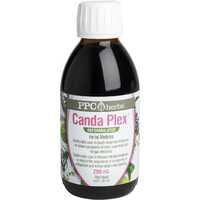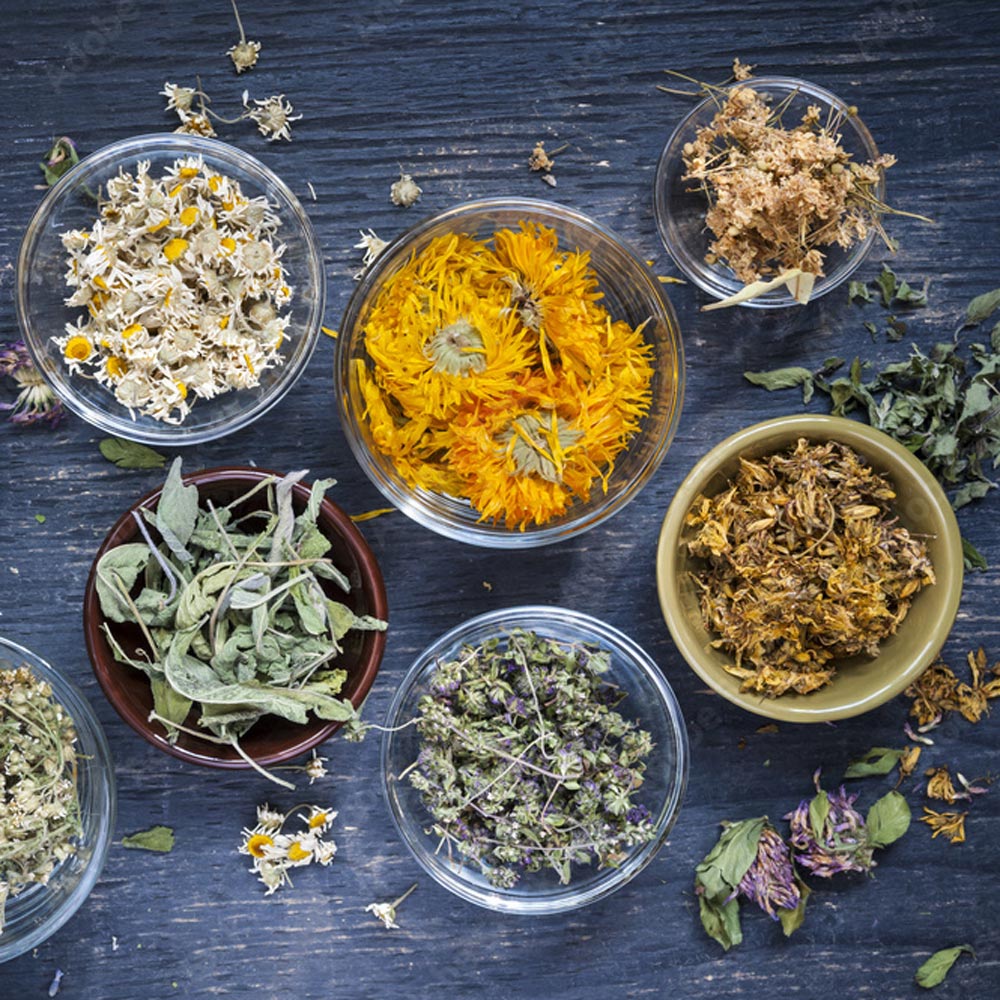Herbs and spices are a fantastic addition to human life. They boost the flavour, aroma, and colour of many foods, and they help to protect us from a variety of acute and chronic diseases. These beneficial ingredients have been used for centuries, with multiple culinary and medicinal applications helping them to spread across the world.
Let's review the history of the spice trade, list the culinary uses and health-giving benefits of these great foods, and analyse some of the most beneficial ingredients.
History of The Spice Trade
Over the course of many centuries, the spice trade has changed the shape of the modern world. Spices were traded among Asian and Indian civilisations for millennia, with trade networks expanding into East Africa, Egypt, and the Arabian Peninsula. Long before Christian times, Arabs and Indians were engaged in the spice trade over land and sea. They were also prevalent in ancient Greek and Roman societies, with the rise of Islamic and Jewish merchant classes bringing spices into larger parts of Western Europe.
The spice trade drove the world economy from the end of the Middle Ages well into the Renaissance. It was responsible for changing power dynamics across the globe and helped to usher in the age of European global domination. While global trade in herbs and spices does not have the same economic influence it once did, access to new cuisines helps to bring people together through shared cultural experiences and food sensations.
The Difference Between Herbs & Spices
Herbs and spices are often mentioned in the same sentence, but they describe different things. While both have medicinal properties and can be used for seasoning purposes, they are distinct.
- Herbs are leaves, with most of them coming from herbaceous plants that lack woody stems. While some herbs come from woody plants, they are mostly aromatic leaves separated from stems and stalks.
- Spices are typically made from other aromatic parts of the plant. From seeds and bark to flowers and roots, spices usually feature a stronger taste as they are dried and crushed.
Culinary Uses of Herbs & Spices
Herbs and spices are grown in the garden and stored in the kitchen. Despite a long history of medicinal use in many parts of the world, they are mostly used as culinary ingredients. Food is the best medicine of all, however, with herbs and spices a fantastic source of nutrition and taste.
Herbs and spices are added to foods to impart flavour, aroma, and colour. They help to enhance taste, excite interest, and stimulate the appetite. Many global cuisines are defined by the application and combination of certain herbs and spices, with the global spice trade giving people access to new dishes, experiences, and cultures.
Traditionally, herbs and spices have been divided into the following four categories based on their degree of taste:
- Hot spices
- Mild spices
- Aromatic spices
- Herbs and aromatic vegetables
Health Benefits of Herbs & Spices
Along with enhancing foods, herbs and spices offer various health benefits and can help to protect you from acute and chronic diseases. Depending on the ingredients and how they're used, herbs and spices may possess antioxidant, anti-inflammatory, antitumorigenic, anti-carcinogenic, glucose-lowering, and cholesterol-lowering properties.
Many herbs and spices are an excellent source of antioxidants, including black pepper, cumin, turmeric, cinnamon, clove, rosemary, sage, and oregano. In addition, spicy foods that include chilli have been linked with a lower risk of death from cancer and respiratory system diseases. According to an observational study carried out in China, people who ate spicy food 1 or 2 days a week had a 10% reduced risk of death from any cause.
The specific action of herbs and spices is due to their bioactive constituents, which differ considerably between materials. Some of the most beneficial constituents include sulphur-containing compounds, tannins, alkaloids, and phenolic diterpenes. The high vitamin content of some spices also has a huge role to play, especially flavonoids and polyphenols. Some spices are known to have a positive effect on cognition, mood, and mental health outcomes, including turmeric, cinnamon, and black pepper.
What Herbs & Spices are The Most Beneficial?
There are hundreds of herbs and spices on the market, and they're far from equal when it comes to their health-giving properties. While each ingredient offers a specific culinary benefit, some materials are much more beneficial for your health. According to a widespread data-driven study of biomedical literature into herbs and spices, the following ingredients have the highest ‘benevolence spectrum score.’
- Garlic (Allium sativum)
- Ginger (Zingiber officinale)
- Turmeric (Curcuma longa)
- Liquorice (Glycyrrhiza glabra)
- Ginkgo (Ginkgo biloba)
- Black cumin (Nigella sativa)
- Cinnamon (Cinnamomum verum)
- Saffron (Crocus sativus)
Some of the ingredients on this list have also been linked with adverse effects in certain situations, however, including liquorice and ginkgo. Let's take a closer look at seven of the most powerful, easily available, and delicious spices on the market. Black pepper has been added due to its popularity, and chilli has been included due to positive associations in many other studies.
Garlic
Garlic is part of the onion family, which makes it closely related to leeks, shallots, and onions. Not only is garlic a base ingredient in many global cuisines, but this powerful food is also regularly consumed for health purposes. Garlic helps to stimulate a sensor in the digestive system, and it's also recommended for diabetes, blood pressure, and the common cold. Many of the benefits associated with garlic are caused by sulphur compounds, including one particular compound known as allicin. Garlic is incredibly nutritious, featuring high amounts of vitamin B6, vitamin C, selenium, manganese, and fibre.
Ginger
Ginger has been linked with positive gastrointestinal health, and it's also good for nausea, stomach pain, and inflammation. Ginger helps to remove gasses in the intestinal tract during digestion, and it can also help to prevent constipation. Ginger has been shown to relieve morning sickness from pregnancy and reduce nausea from cancer treatment. In addition, anti-viral activity from ginger helps to manage symptoms of cold and flu. While this incredibly popular ingredient is low in vitamins and minerals, it has lots of antioxidants and tastes absolutely delicious.
Cinnamon
Cinnamon comes from the inner bark of a small evergreen tree, and it is highly popular in both sweet and savoury dishes. Cinnamon has a range of anti-viral, anti-bacterial, and anti-fungal properties, which makes it a great way to support gut health, manage blood pressure, and lower the risk of diabetes. Additionally, this amazing ingredient has also proven beneficial for the ageing brain, with two compounds in cinnamon found to inhibit the build-up of proteins that cause Alzheimer's disease.
Turmeric
Turmeric is a popular spice loved for its taste, colour, and health-giving properties. Most of turmeric's benefits come from its main active ingredient, curcumin, which is a very strong antioxidant and has powerful anti-inflammatory effects. Turmeric helps to fight inflammation in the body, with this pervasive condition known to influence the onset and development of heart disease, metabolic syndrome, degenerative conditions, and cancer. Turmeric also has a positive effect on the brain, boosting the brain-derived neurotrophic factor and reducing the likelihood of age-related cognitive impairment.
Cumin
Native to the Mediterranean and Southwest Asia, cumin offers a distinctive taste and has a wide collection of health benefits. Among other things, cumin helps to promote healthy digestion, reduce food-borne infections, and treat diabetes. This powerful ingredient also has a strong nutritional profile, including a significant percentage of iron and plenty of antioxidants to help fight inflammation. Cumin may even help with weight loss, with concentrated cumin supplement found to enhance weight loss efforts when combined with lime.
Black Pepper
Black pepper is an incredibly common food ingredient found in most kitchens and on most tabletops around the world. Sometimes referred to as the "king of spices," black pepper is a powerful antioxidant with the ability to enhance the absorption and function of certain nutrients. Black pepper may also help to promote digestion by stimulating the release of enzymes in your pancreas and intestines. According to one study, the application of black pepper can also help to reduce the carcinogenic effects associated with cooking food.
Chilli
Loved by millions of people from all corners of the world, chilli is the base ingredient in many global cuisines. Chilli peppers are the fruits of capsicum pepper plants, with this food regularly added to savoury meals in cooked, dried, or powdered form. Capsaicin is the main bioactive ingredient in chilli peppers, and it's responsible for its taste and health-giving properties. Chilli peppers are rich in vitamins and minerals and high in antioxidant carotenoids. Capsaicin can help to promote weight loss by reducing appetite, and it also helps to reduce salt preference and associated blood pressure problems.
Conclusion
Herbs and spices are a great way to enhance your food, and they can also have a positive impact on your health. Due to the small quantities involved, however, the nutritional benefits of many ingredients are limited when consumed as a food alone. If you want to supercharge your health with these incredible ingredients, nutritional herbal supplements are a great way to complement a healthy diet and exercise regime.


 Certified Organic
Certified Organic Vegan Friendly
Vegan Friendly  Vegetarian
Vegetarian Organic Ingredients
Organic Ingredients Dairy Free
Dairy Free Gluten Free
Gluten Free Keto Friendly
Keto Friendly































